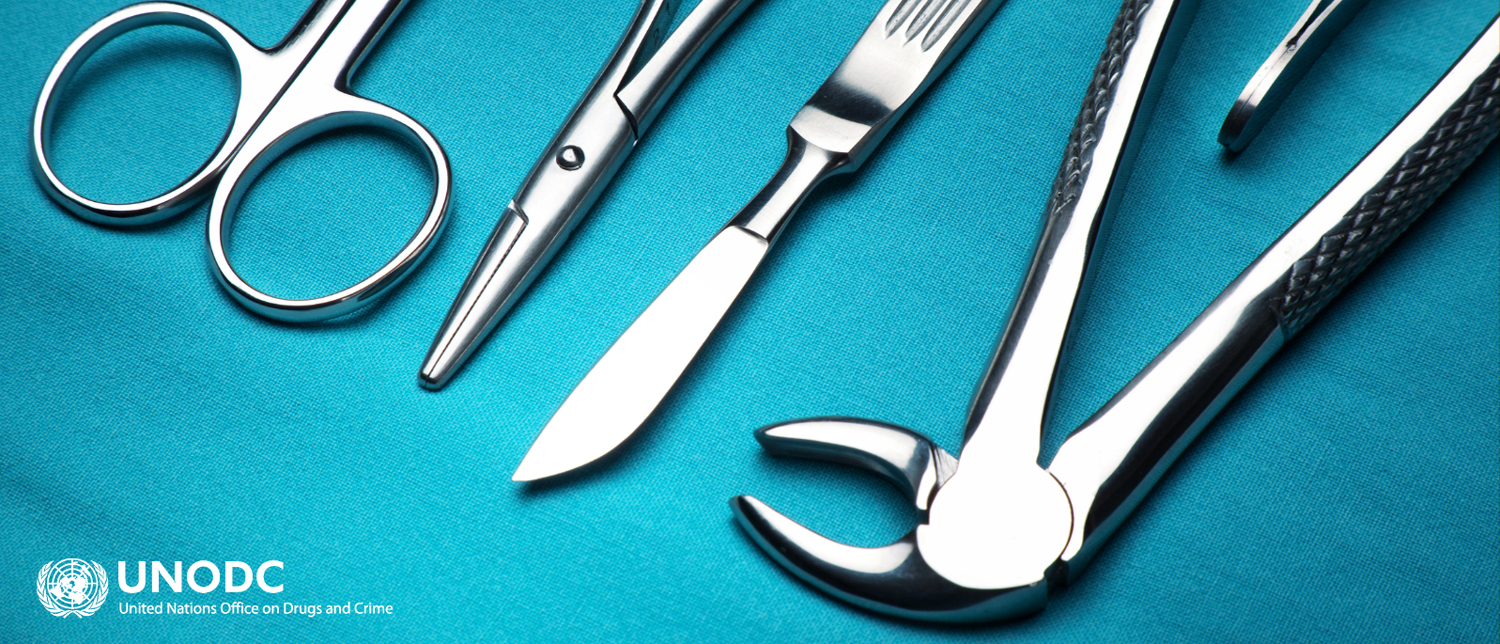
Human trafficking for organ removal is surrounded by myths and misconceptions. In movies, it's often portrayed as a person waking up in a bathtub filled with ice, missing a kidney. However, the reality of this crime is far more complex, and these myths hinder our comprehension of how traffickers operate.
In this article, we shed light on what is known and unknown about this hidden crime.
It is a form of trafficking in which individuals are exploited for organs. Although victims often appear to have consented to the removal of their organs, their consent is invalid when deception, fraud or abuse of a position of vulnerability is involved. In such cases, they are considered victims of human trafficking.
The traffickers, who are usually part of sophisticated criminal networks, profit by selling these organs to recipients who are unable or unwilling to wait for legal transplants.
In 2007, the World Health Organization (WHO) estimated that 5-10 per cent of all transplants worldwide used organs from the black market. However, with a growing and aging global population, the globalization of unhealthy lifestyles, and increased mobility, the actual number could be significantly higher.
The exact scale of this criminal activity remains unknown. Few studies have been conducted, as the crime’s clandestine nature makes data collection and verification difficult. Victims may also be hesitant to step forward, as organ selling constitutes a crime in most countries.
The demand for human trafficking for organ removal largely arises from the global shortage of organs available for ethical transplant procedures. While more than 150,000 transplants are performed annually worldwide, this meets less than 10 per cent of the global demand.
Desperation drives patients with organ failure to resort to obtaining organs through illegal means. The organ trade, which includes human trafficking for organ removal, is a lucrative criminal business, amounting to between 840 million to USD 1.7 billion USD annually.
The most harvested organs from victims of trafficking in persons are kidneys, followed by parts of livers.
Traffickers typically operate within complex and elusive global networks, requiring a sophisticated infrastructure involving medical specialists, logistical coordination and access to healthcare facilities. They connect with their victims using local advertisements, social media or via direct approaches by recruiters, who may be former victims themselves or trusted individuals within the victim’s community.
These criminal networks are highly organized and flexible, often functioning as mobile units or specialized groups. Key players include brokers who coordinate logistics, recruit medical professionals, and prepare fraudulent documents. To ensure smooth operations, they rely on a wide range of facilitators such as healthcare officials, hospital administrators, customs officers and local recruiters.
Detecting this crime can be challenging, as traffickers often train victims to pretend that they are related to the recipient to evade suspicion during evaluations at hospitals or clinics.
Victims of this form of trafficking are typically from poor, uneducated and vulnerable backgrounds. Organized criminal groups specifically target unemployed individuals, migrants, asylum seekers and refugees. Many are coerced, deceived or see organ selling as a last resort to improve their dire situations.
Although some victims receive limited financial compensation, many receive no money at all and sometimes no post-operative care. Most of the victims are men, with two-thirds of reported cases involving male donors.
The long-term health consequences for victims can be devastating, with many experiencing a sharp decline in their physical condition post-surgery, along with stigmatization and depression. The psychological impacts often lead to a further deterioration in their standard of living, trapping them in a cycle of poverty and poor health.
The UN Office on Drugs and Crime (UNODC) provides technical and legislative assistance to bolster criminal justice responses to human trafficking for organ removal. To support criminal justice practitioners, UNODC has published the Toolkit on the Investigation and Prosecution of Trafficking in Persons for Organ Removal.
UNODC is developing research and capacity-building programmes, along with guidance, to enhance national capabilities in addressing human trafficking for organ removal and organ trafficking and is ready to provide capacity-strengthening to interested States.